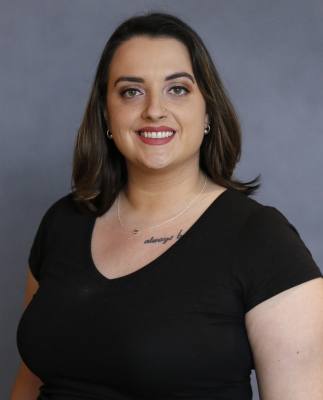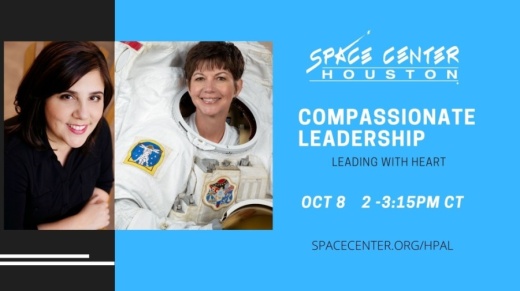As professionals in the Houston area and beyond prepare to return to work and adapt to a new office normal amid COVID-19, Space Center Houston will make the insights of NASA experts and corporate psychologists accessible to adult learners through a fall lecture series.
The first of the talks takes place Oct. 8 from 2-3:15 p.m. Registration is $24.95, and those interested can register until 1 p.m. There is not a timeline set for the rest of the lecture series, but Space Center Houston’s Human Performance Accelerator Lab hopes to continue the dual-speaker lecture series with Spanish-speaking panelists to reach audiences around the world, Communications Supervisor Meridyth Moore said.
Stanford School of Business lecturer and author Leah Weiss will join former NASA astronaut Cady Coleman on Oct. 8 to discuss how having compassion and empathy can create a more inclusive, productive and result-oriented work environment. The speakers said many factors influence how team members work with each other and how members can get the most out of any professional experience.
Missions were always more important than whether you liked your teammates or were homesick, Coleman said. The experiences she had have made her feel privileged in how she interacts with the world, she added, and the knowledge she gained from those mission experiences is applicable today.
“I learned the importance of just continuing to search for the ways that we can connect with each other and understand what each other brings to the table,” she said. “I think everybody needs to get more out of their team.”
In space, there is no up or down, so if someone misplaces an object, they must look differently at their environment if they want to locate it, Coleman said. This same principle applies on Earth: Learning to form connections and look at a person, place or thing differently is essential, she said, otherwise the same results occur over and over.
“In these times, thinking about social justice, it's really important to hone these skills of how to see people on our team,” Coleman added. “There is more to each of those kinds of people, and there is more to you.”
Weiss’ insights will complement the Oct. 8 discussion by providing practical and scientific implications behind compassion research. This branch of research deals with topics such as the neuroscience of compassion, creating compassionate interactions and ways to train people in becoming more compassionate leaders, Weiss said.
Coleman’s training in extreme environments gave her experience building relationships under inhospitable circumstances, Weiss said, and many of Coleman’s experiences can be applied to broader studies of compassion and health as well as organizational psychology. Together, the two aim to help prepare the next generation of leaders and push the current generation of leaders to think humanely in terms of the impact they have on employees and coworkers, Weiss said.
“Right now for many of us in the pandemic, we are experiencing so many changes in our relationships professionally and personally,” she said. “Paying attention to creating stronger relationships, building a sense of belonging ... it takes some effort and some skill.”
NASA is currently working on more than 1,100 research projects related to team performance, said Daniel Newmyer, Space Center Houston’s vice president of education. The lecture series as a whole aims to bring lessons from these projects to business and community leaders interested in maximizing their performance, allowing them to use space exploration knowledge as a springboard for leadership, speakers and center leaders said.
“You get the NASA perspective, and then you’ve got this real-world perspective that brings it home,” Newmyer said, “[and shows how] it’s going to impact your life.”
These lessons are even more important now, Newmyer added, as people navigate teamwork when returning to office environments. Making the teamwork happen, and flourish, will be a markedly different process than it was pre-pandemic, he said.
Future lecture series topics will include developing growth and expeditionary mindsets, embracing change, and the overview effect, which is the cognitive shift in awareness astronauts experience during spaceflight. The series is open to individuals, corporations, small businesses, nonprofits, educational institutions and government organizations. Custom programs can be designed to meet the specific needs of any company.
Although many may be feeling “Zoom fatigue,” Weiss encouraged adult learners to attend the program and reconnect with the bigger picture.
Coleman agreed, adding that everyone has a mission to complete.
“There’s a lot of really important missions out there, [even if] it is just being in your house and keeping you and your family safe,” Coleman said.





